Rocks
Types of rocks
- Igneous
- Sedimentary
- Metamorphic
Igneous Rocks
Example: basalt and granite
Formed as a result of volcanic activity when molten magma escapes from the mantle and cools and hardens. If it reaches the surface as lava it cools and solidifies quickly whereas magma inside the crust cools slowly
Basalt
Fine - medium grained
Black - Dark grey
Formed when lava cooled quickly on the Earth’s surface => small crystals
Basalt is used for road chippings
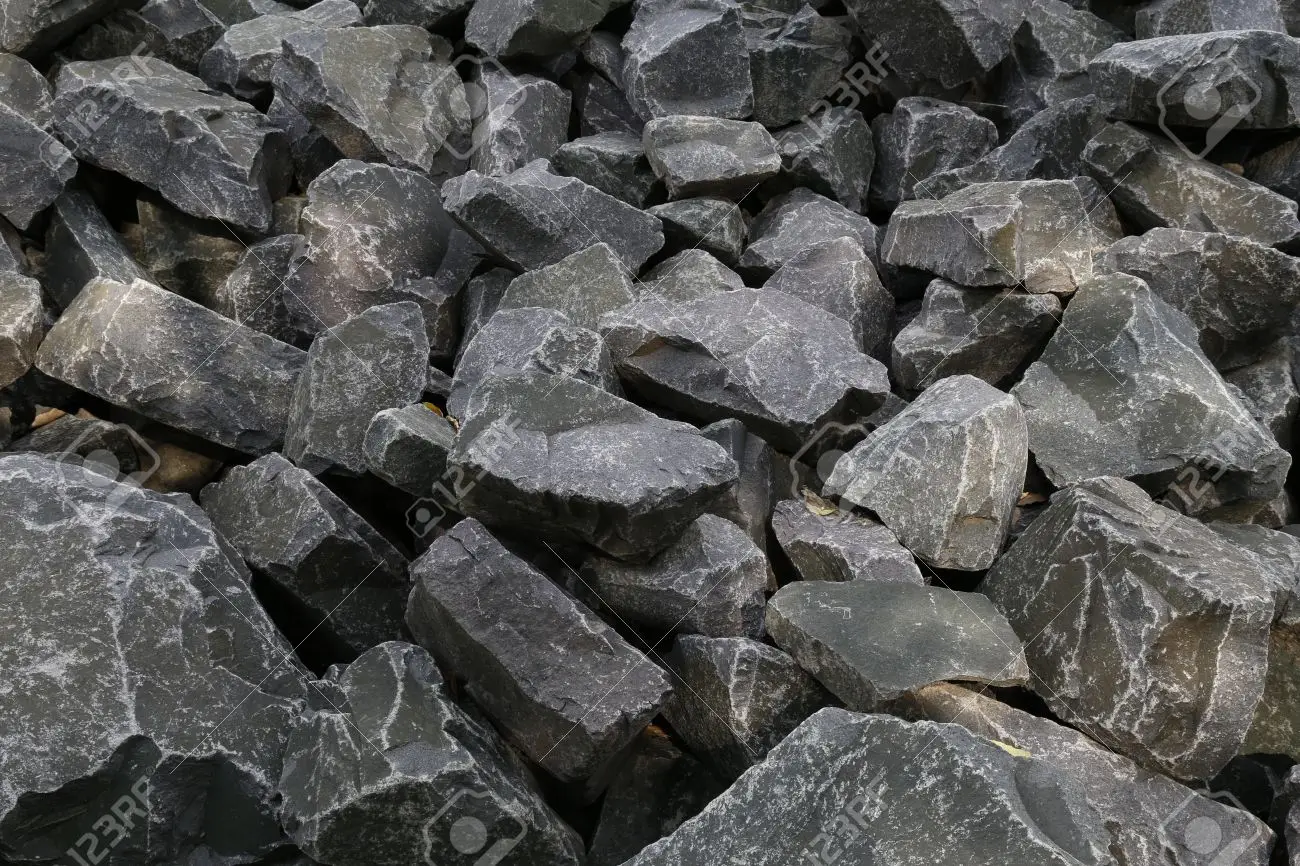
Example: Giant’s Causeway, Antrim-Derry plateau
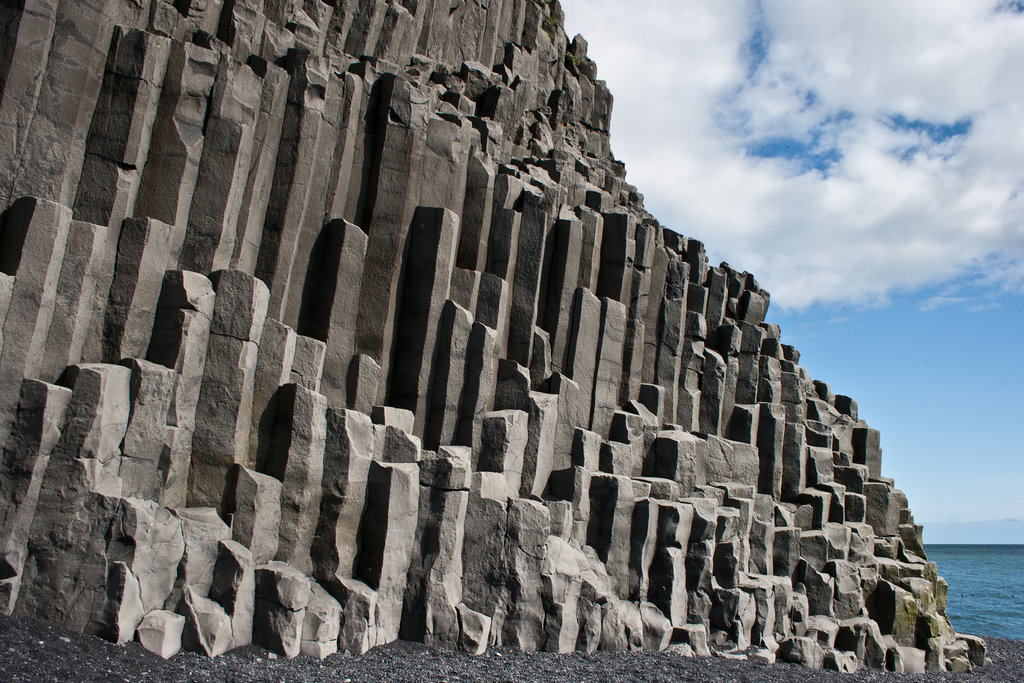
Granite
Coarse grained
White, Grey, Pink or Black
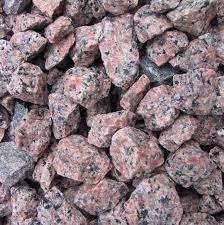
Formed when magma cools slowly deep inside the earth’s crust => Large crystals
Contains minerals of feldspar, quarts and mica
Granite is used for counter tops, monuments, headstones and fireplaces
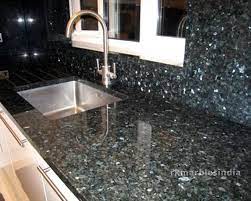
Example: Wicklow moutains and the Mourne moutains in County Down
Sedimentary Rocks
Sedimentary Rocks
Example: Sandstone and limestone
Formed from particles of dead plants and animals. Sediments are deposited on the sea and lake beds and on land. Layers of this material builds up and is compressed and cemented together creating solid rock.
Limestone
Grey
Coarse grained
Formed over millions of years
Made from the particles of shells and the skeletons of small creatures. When sediments sink to the bottom of the seabed, layers are built over time. The weight of the upper layers compresses and cements the lower layers of sediments into strata (layers) to form solid rock
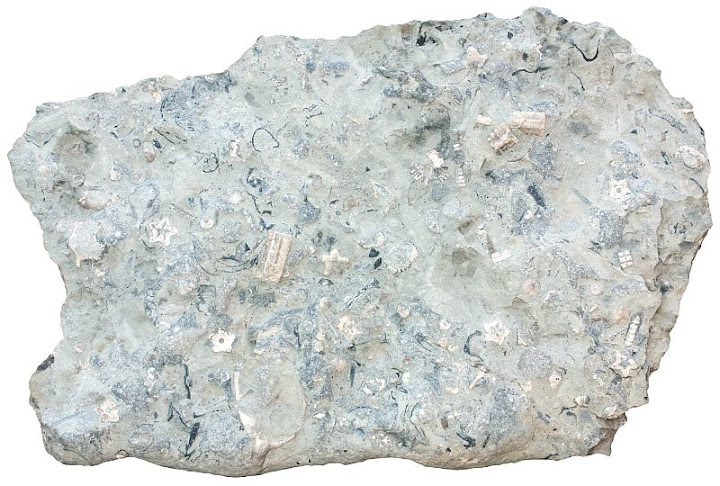
Limestone is used for monuments and in construction of buildings
Ground down => lime => spread on soil to increase fertility
Example: The Burren in County Clare
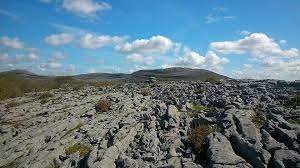
Sandstone
Red/brown
Coarse grained
Formed from sand that has been worn away from the earth’s surface. This sand is carried away by wind and rivers and deported as sediment in seas, lakes and deserts. The layers that are built up over time are compressed and cemented together forming solid rock.
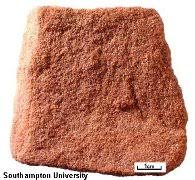
Cork and Kerry
Sandstone is used for patios and as building material
Metamorphic Rocks
Example: Quartzite and Marble
Formed from rocks that already exist such as igneous or sedimentary rocks. These rocks are changed into harder rocks due to great heat and/or pressure.
Marble
Li^^M^^estone => ^^M^^arble
Hard and smooth
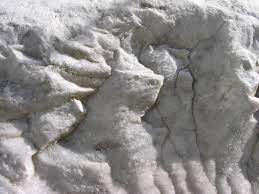
White => Antrim
Red => Cork
Green => Conemara
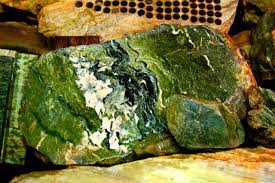
Black => Kilkenny
Formed when limestone is put under great heat and pressure due to plate movement or when limestone comes in contact with molten magma
Marble is used in sculptures, monuments, kitchen worktops, floortiles , fireplaces and headstones
Quartzite
Sandstone => Quartzite
Grey/white
Formed when sandstone is put under great heat and pressure due to plate movement or when sandstone comes in contact with molten magma
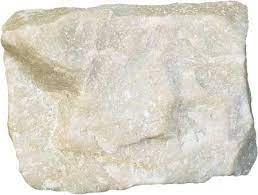
Extremely hard and grainy
Found on mountain tops => not easily broken down
Used in glass making and in road surfaces
Example: Croagh Patrick in Mayo
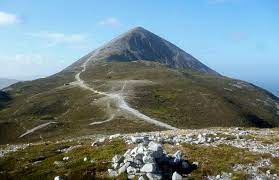
Uses of rock
Natural resource: something in the natural world that people can use to their advantage
Rocks are Natural resources
- Sources of energy and building materials
Energy
Some rocks can be used to create energy => fossil fuels
Coal
If close to the surface => mined in open pits
If underground => mined in a mine
Extracting from within the earth’s core => shaft mining
Oil and gas
Extracted from rock by drilling and pumping
Can be done offshore in a rig
Building materials
- Usually extracted by quarry
- Limes stone, sandstone + marble
Impacts of quarrying and mining
}}Positive impacts}}
Employment => supports local economy
Supports other economic activities => provides material
Provides raw materials to make:
- Glass
- Copper
- Steel
- Iron
[[Negative impacts[[
Pollution
Eyesore
Traffic congestion